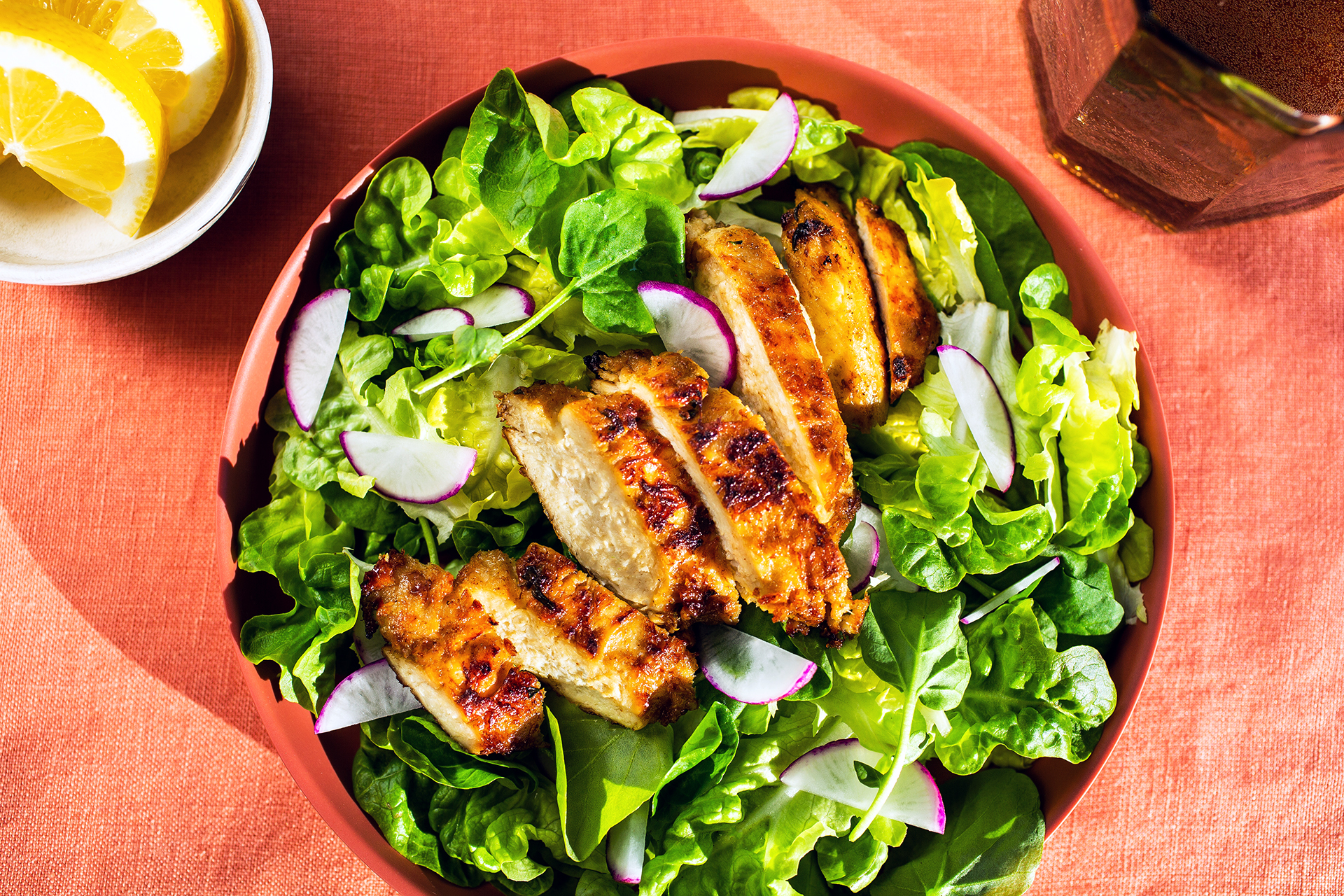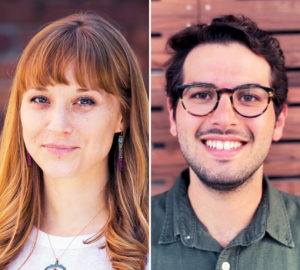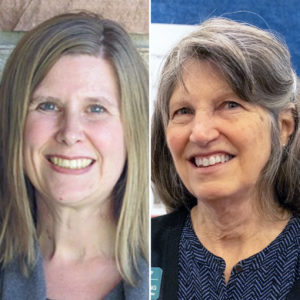
One Colorado State University graduate helps keep chicken cells “happy,” while the other CSU alum aims to make consumers satisfied when they eat lab-grown chicken.
Jessica Joslin and Daniel Davila both work for UPSIDE Foods, one of two businesses that have simultaneously earned the United States Department of Agriculture stamp of approval to produce and offer cell-cultivated chicken to restaurants and shoppers.
Joslin, a principal scientist, is a 2014 CSU graduate who earned a Ph.D. in chemistry. Davila, a senior food scientist, is a 2019 CSU graduate who earned a master’s degree in food science and nutrition.
Both see UPSIDE’s last governmental checkmark as a groundbreaking moment for the cultivated meat industry, especially in a world where demand for meat is expected to double by 2050.
Foundations built at CSU

“The network within CSU is really what prepared me for working in food innovation,” Davila said. “Whether it was alternative proteins, meat science, food processing technologies, and yes, even cultivated meat, there was someone there who could share knowledge and point you in the right direction.”
As Colorado’s land-grant university, CSU has long supported animal agriculture and local food producers. Newer technologies, like UPSIDE’s lab-based approach, address a consumer demand for alternative protein options.
“We had someone come into our food biotechnology seminars to talk about advances in cultivated meat, and I remember thinking to myself that I would be lucky to even try something like that in my lifetime,” Davila said. “Fast forward a few years to me accepting a job at UPSIDE Foods, where I get to work with that same technology every day. It really is amazing how quickly food technology moves, and I am happy to be working with a leader in the cultivated meat space.”
Joslin said her time at CSU was all about learning that failure is a big part of the scientific process, and that creativity is needed to find solutions.
“The Department of Chemistry was always bringing in professors for seminars that highlighted amazing and cutting-edge research, and we got to have meals with them,” Joslin said. “Looking back, even things that were terrifying at the time gave me exposure to so many different aspects of chemistry and helped me to become a well-rounded scientist.”
Job duties at UPSIDE
The duo traveled different paths from Fort Collins to get to California-based UPSIDE. They work in separate roles but have a common goal.
In her first five years at UPSIDE, Joslin was a research and design scientist leading the analytical team. She’s transitioned to being a scientist on the regulatory team.
“My expertise in analytical chemistry has allowed me to help build a foundation for how we develop methods to analyze the composition of our meat products,” Joslin said. “This allows us to optimize and understand the meat-growing process from start to finish, including characterizing the cells, how those cells grow and how we keep them happy, and ultimately determining the nutritional profile and safety of our products. To make the best products, we need the best data – and for that we need the best analytical methods!”
Davila works in product development, leading a team of food technologists who work on all aspects related to finished products.
“We test various prototypes at the bench, screen new species and formats of UPSIDE meat, and collaborate with sensory and manufacturing to set us up for successful commercialization and launch of our delicious products,” Davila said. “At the end of the day, it really comes down to a group of scientists and food people making different iterations of tasty things like sausages, meatballs, chicken nuggets and much more.”
Model graduate students

“By the end of her first summer, Jessica already had collected all the data that she needed for a manuscript. That’s the fastest that I’ve ever seen it done,” said Melissa Reynolds, a faculty member in CSU’s College of Natural Sciences. “And it wasn’t because it was an easy project, or her idea was simplistic. It was because she had the mindset to continually adjust to whatever the data was giving her at any given time and kept moving it forward.”
Reynolds said Joslin gave an interview to The Good Food Institute in 2019 in which she described how her work in chemistry made her want to use her skills for the greater good: “Jess was just very special in terms of how she approached problems in science when she was in graduate school.”
Marisa Bunning, a professor specializing in food safety and an Extension specialist based in CSU’s College of Health and Human Sciences, said Davila had a similar drive.
Davila won a graduate student cooking competition held during a 2018 visit from celebrity chef Nancy Fuller, host of the Food Network series Farmhouse Rules. “Daniel had a background in culinary science when he came to CSU,” Bunning said. “He just had a good sense of how to prepare food and what tastes go well together.”
“He’s a go-getter,” Bunning said of Davila, who took the fermentation science and technology course, Fermentation Process, Design and Technology, so he could understand the engineering aspect. “He was definitely interested in innovative food development.”
Crediting their mentors
Davila said Bunning was influential during his entire time at CSU.
“From the moment I got my acceptance letter, she was there to help me find TA assignments, enroll for courses outside the scope of my department, and really let me get creative with my research focus,” Davila said. “Graduate school is really what you make of it, and while I had the motivation and curiosity to explore many areas within food science, Marisa was there every step, helping me to get the resources I needed to be successful.”
Joslin said Reynolds is always smiling, supporting and encouraging her team to grow and never stop learning.
“Melissa encouraged me to grow as a scientist by learning, not being afraid to fail, and constantly keeping a spirit of curiosity,” Joslin said. “She also encouraged me to seriously evaluate and critique the analytical methods being used in the field and offer new analytical solutions to overcome those limitations – this was the seed for me becoming an analytical chemist.”
The Department of Food Science and Human Nutrition is in CSU’s College of Health and Human Sciences. The Department of Chemistry is in CSU’s College of Natural Sciences.